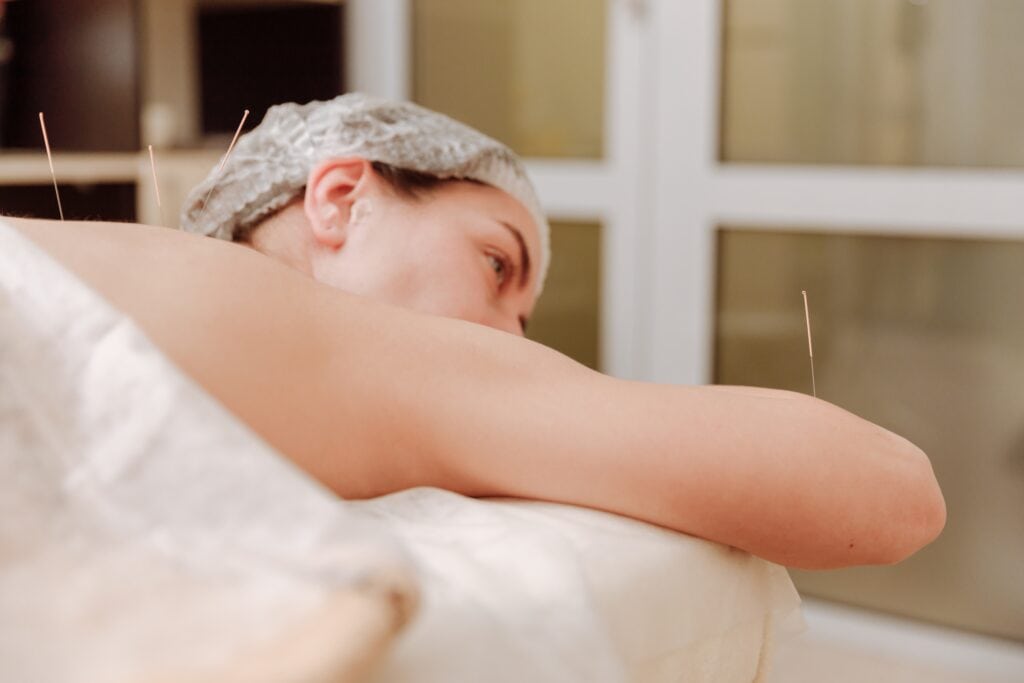Allergies affect millions of people all over the world and data shows that 10 million Americans suffer from the most common one, pollen allergy. If you live in Arizona, you know that there is a year-round growing season which makes pollen to be on the top of the list when it comes to Phoenix allergies. So symptoms like sneezing, coughing or watery eyes are bothering a lot of people, not to mention that irritants like dust or air pollution can make them worse.
If you suffer from any allergic reactions, check with your doctor, who can give you the right diagnosis and come up with a treatment plan. Although there is no cure for allergies, there are some treatments available which can help alleviate your symptoms. But can acupuncture help with allergies? Acupuncture has indeed become an alternative treatment for a variety of medical issues, like anxiety, pain or nausea. Below we explain why acupuncture is said to help alleviate allergy symptoms.
What is acupuncture?
Acupuncture is a part of traditional Chinese medicine which involves tiny needles being inserted into the body. It is popular not only in China, as it has particularly been practiced in Japan, Korea and Vietnam for thousands of years.
Traditional Chinese medicine views a technique for balancing the energy (or life force, Wei Qi) in your body and inserting needles into specific parts of the body can help restore the energy balance. On the other hand, many doctors from Western medicine say that acupuncture can stimulate the body’s natural painkillers.
How can acupuncture help with allergies?
Acupuncture, like any other type of treatment (alternative or not), is safe when done by a qualified practitioner. In the case of allergies, acupuncture treatment involves initial bi-weekly appointments that can last up to several months. As already mentioned above, according to traditional Chinese medicine, acupuncture is correlated to the body’s energy system and through this, it can improve the body’s immune system, which ultimately alleviates the allergic reaction.
It is also believed that those suffering from allergies are more prone to “wind invasions” due to their deficiency of Wei Qi, or “protective energy”. So when practicing acupuncture, the energy of the “Lung” and the “Liver” is stimulated and regulated in a way that strengthens the response to allergens.
Recent studies have shown that acupuncture has improved the quality of life and the allergic symptoms, particularly in allergic rhinitis and reactions like sneezing, itchy, and runny nose, watery eyes, or inflammation.
How does acupuncture relieve allergy symptoms?
There are mainly 3 ways in which acupuncture is said to provide relief from allergy symptoms:
- By boosting immunity – the needles help decrease inflammation.
- By calming the mind – it helps to reduce stress levels.
- By relieving pain – it removes the pressure from the sinuses or the chest.
However, if you suffer from allergic reactions, make sure you check with a board-certified allergy specialist who can prescribe adequate treatment.
How does science view acupuncture?
There are several studies that show that acupuncture may have effects on the nervous system and more recently, acupuncture has been practiced in modern medicine as well to treat inflammation.
On the other hand, there is no concrete scientific evidence regarding the role of acupuncture in allergy treatments. Scientific evidence supports the idea that acupuncture is effective in treating some symptoms, but not others.
Despite many studies conducted on the efficacy of acupuncture in allergy treatment, some evidence of a placebo effect was found in several patients.
The takeaway
Allergies affect many people and finding the right treatment is not always a walk in the park. Make sure you always check with a board-certified allergy specialist for an accurate diagnosis and treatment plan. For those who are wondering if acupuncture can treat allergies, it might be able to help relieve symptoms when paired with traditional Western methods, but it’s always recommended to check with your doctor if you have any allergic reactions.
Our allergy associates are here to help with any questions you have, get in touch today for more information!



